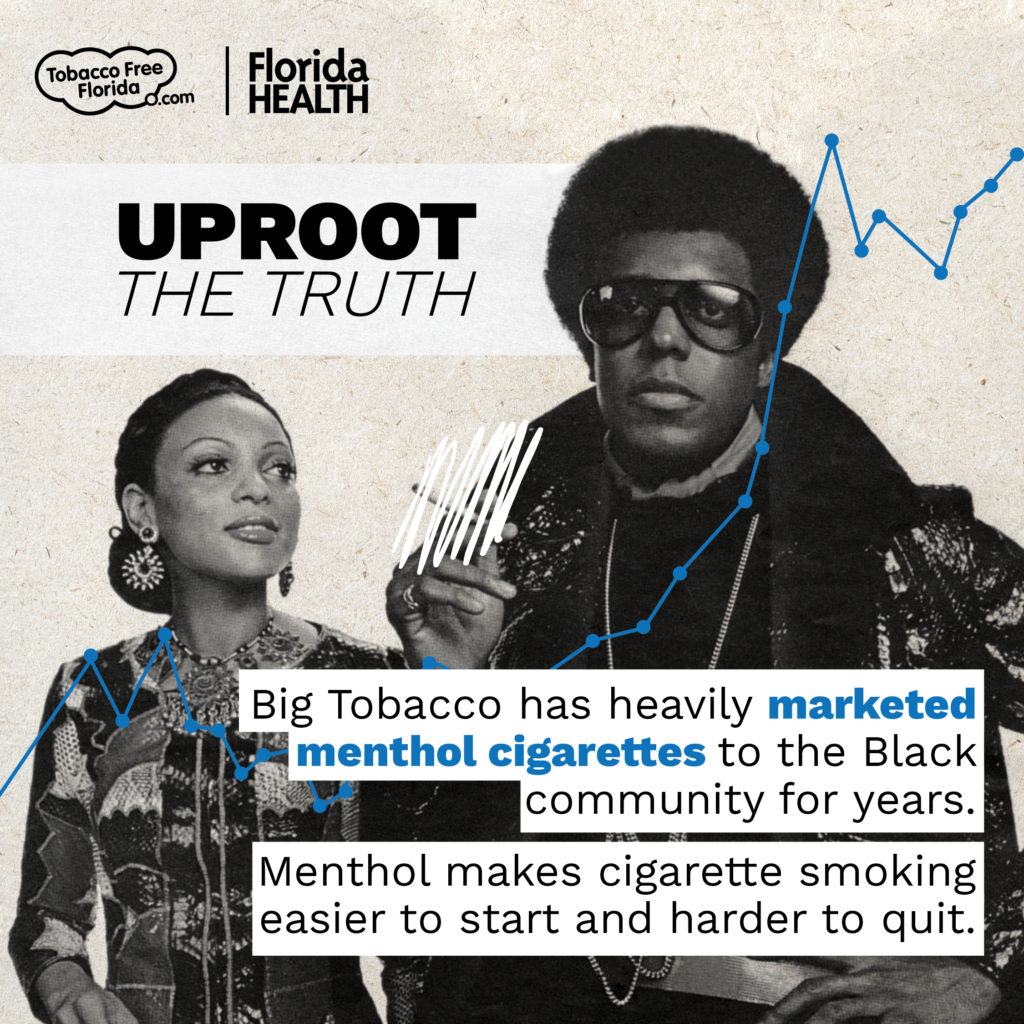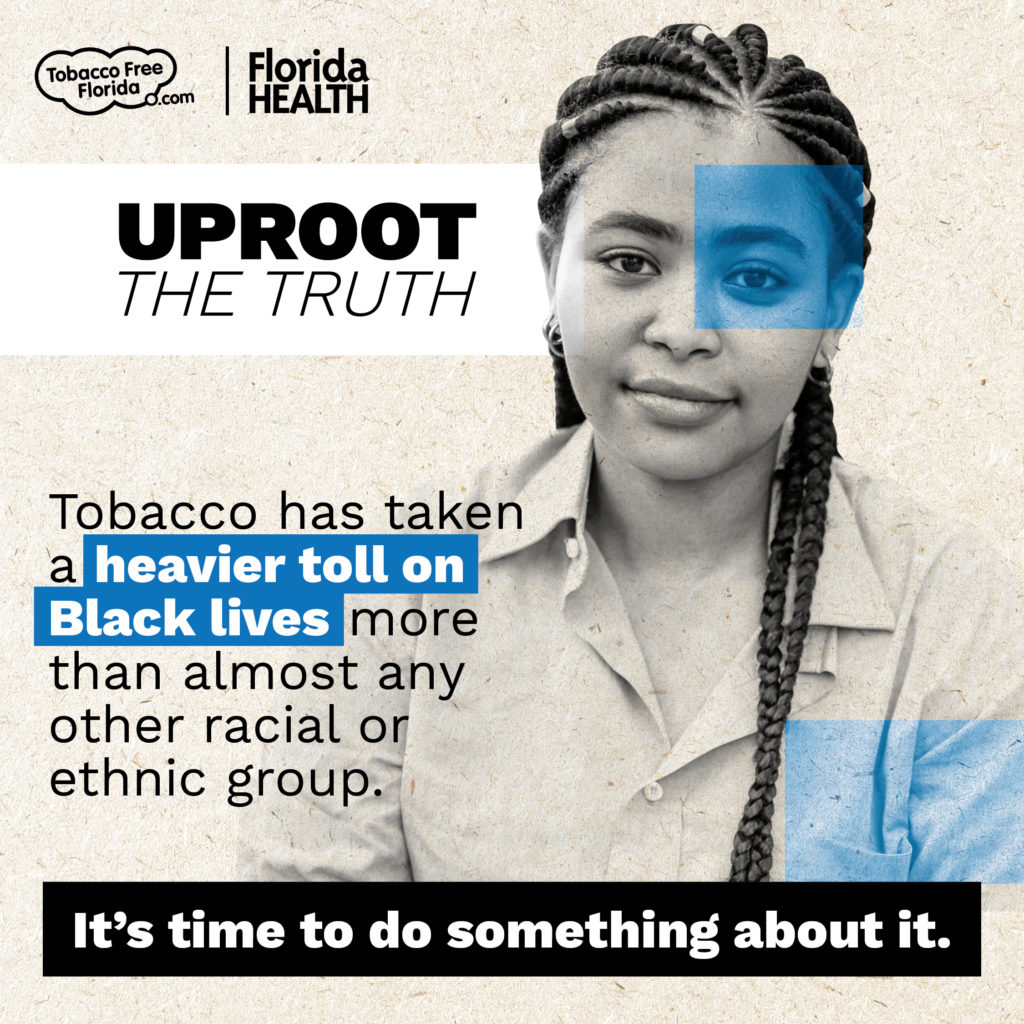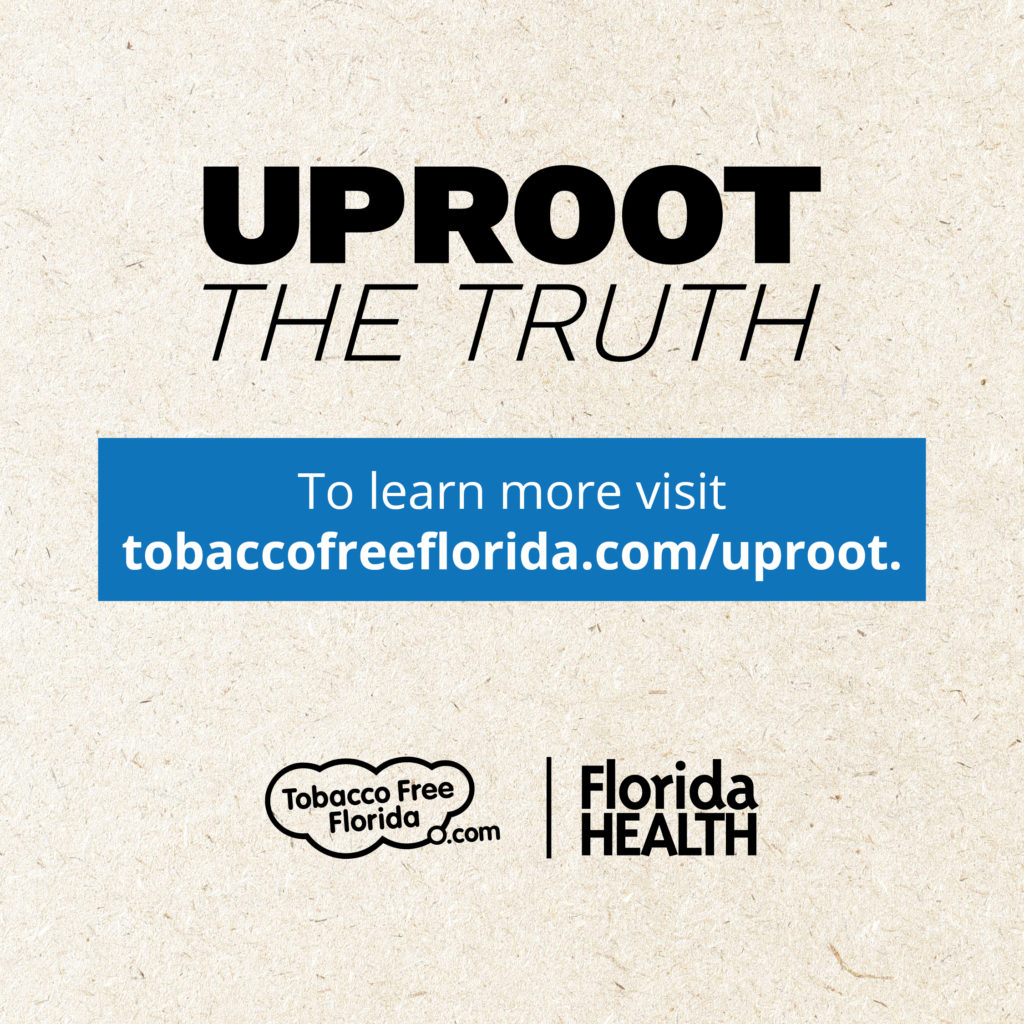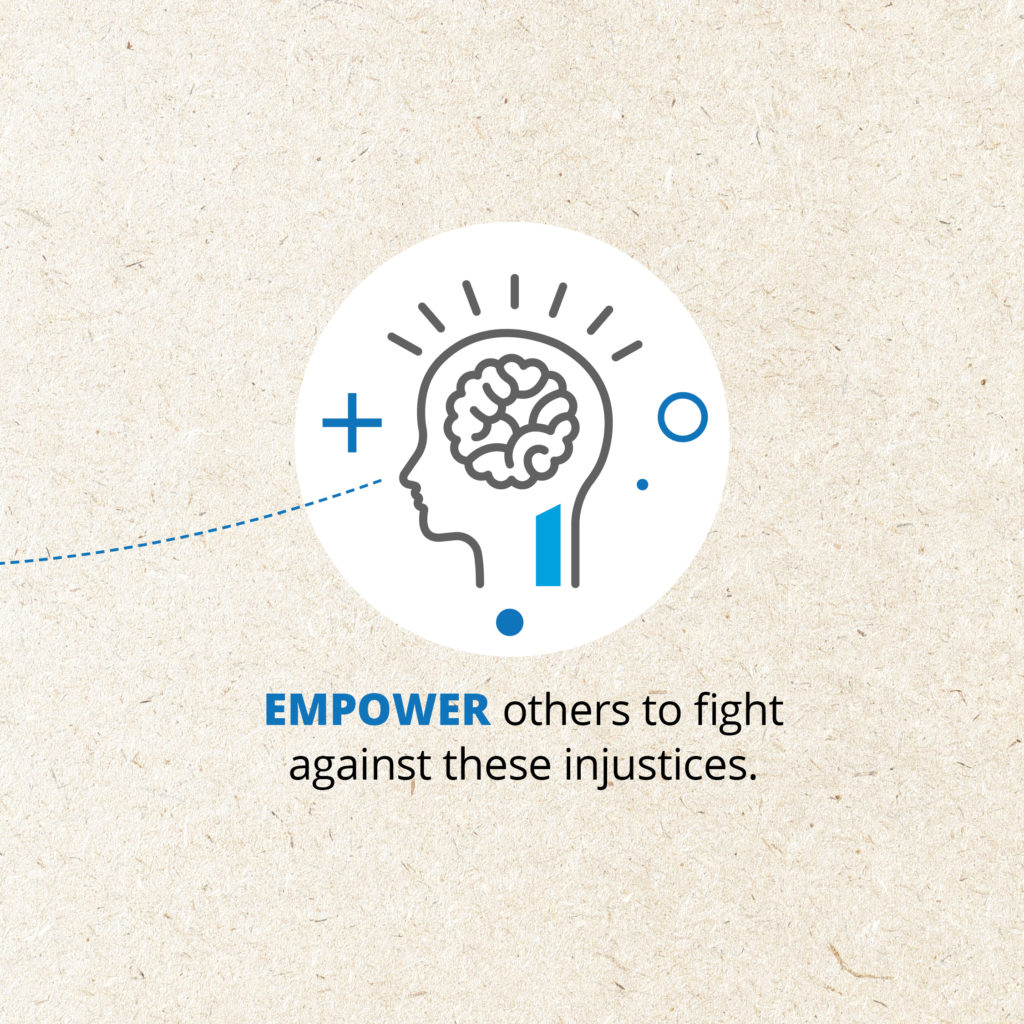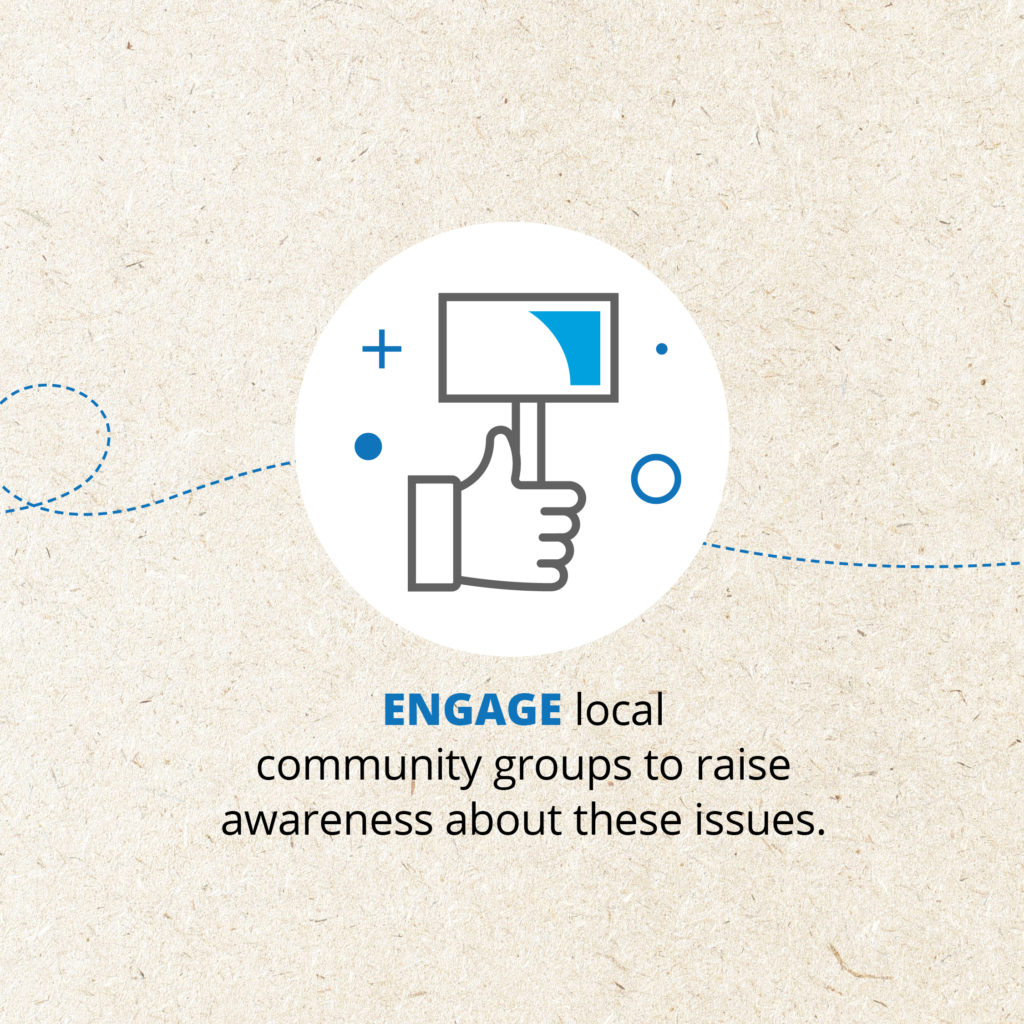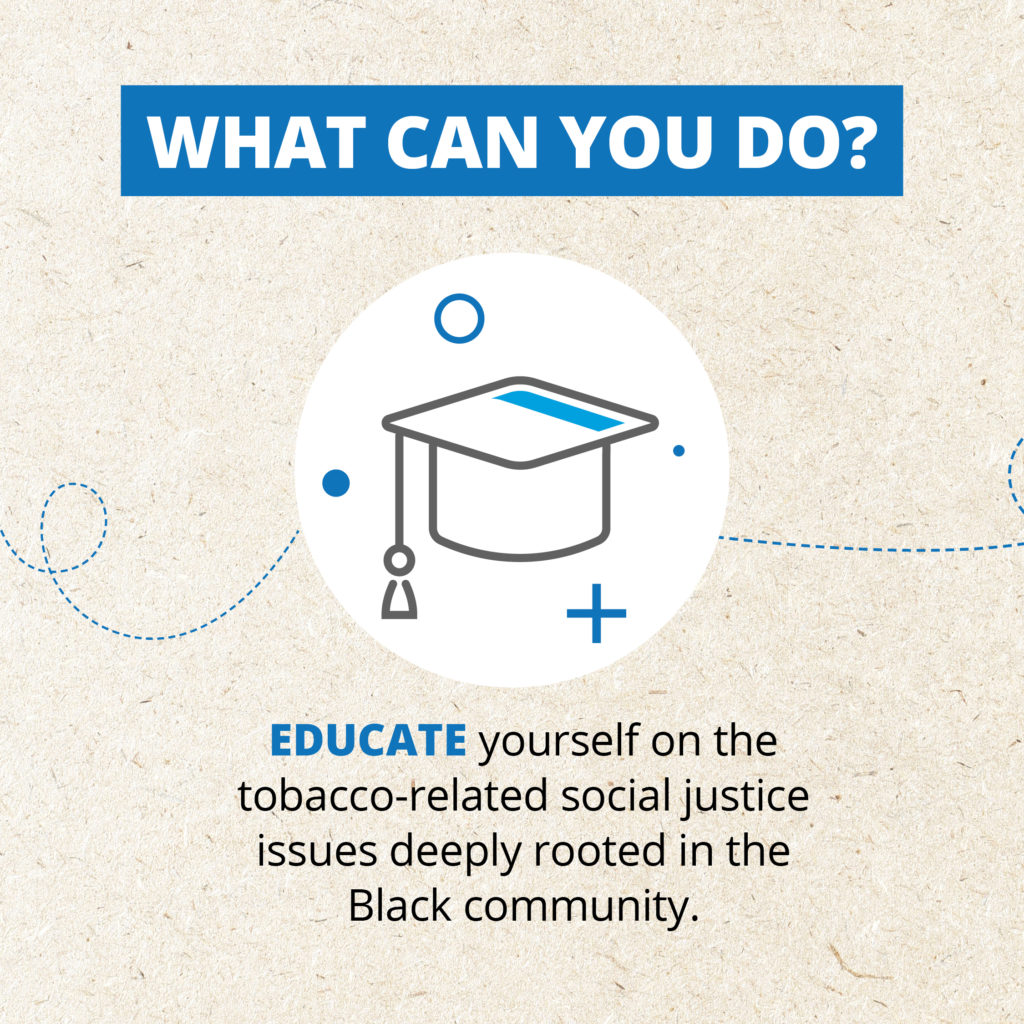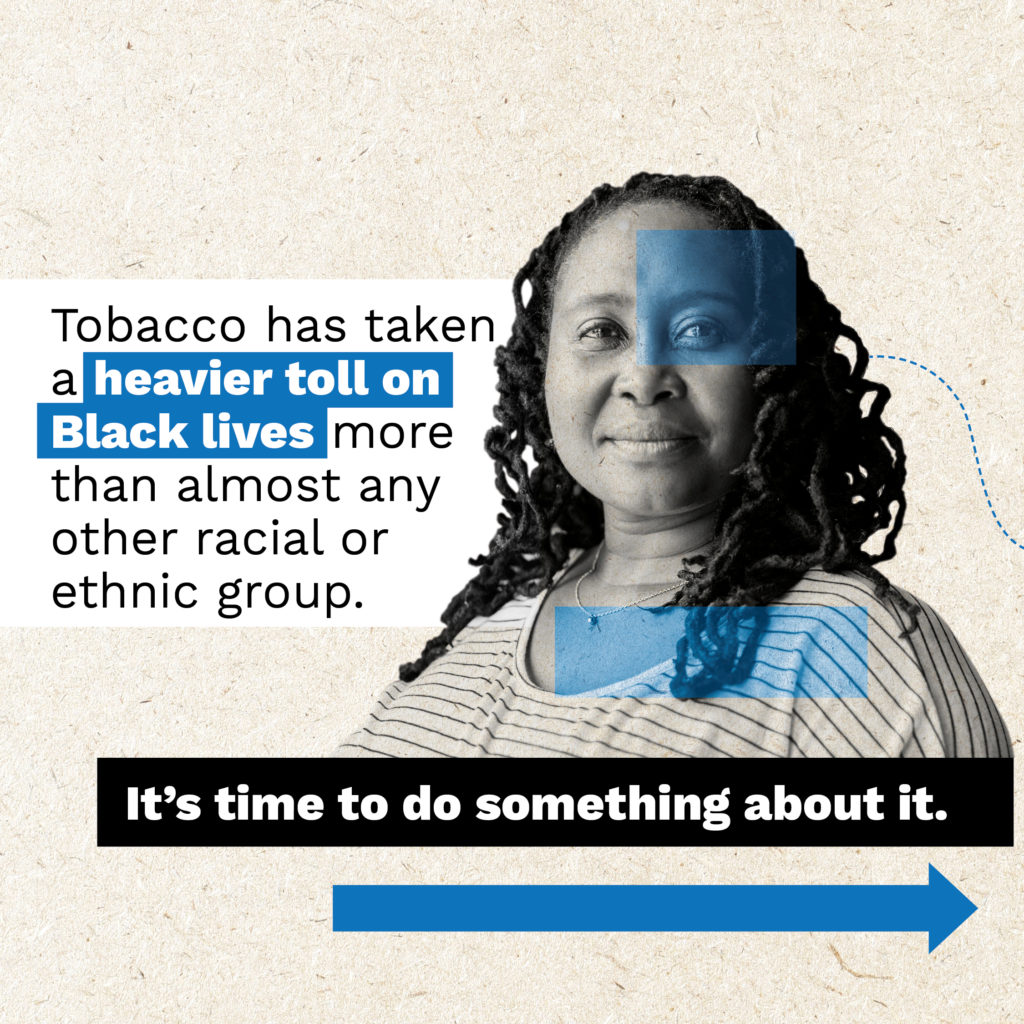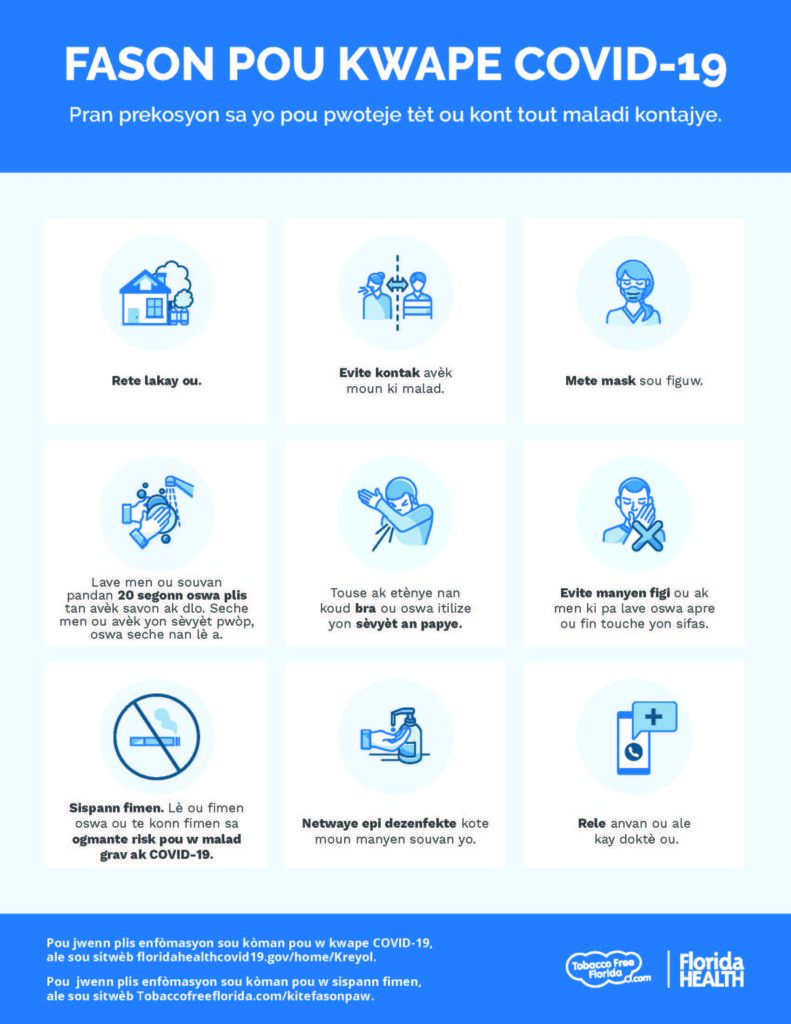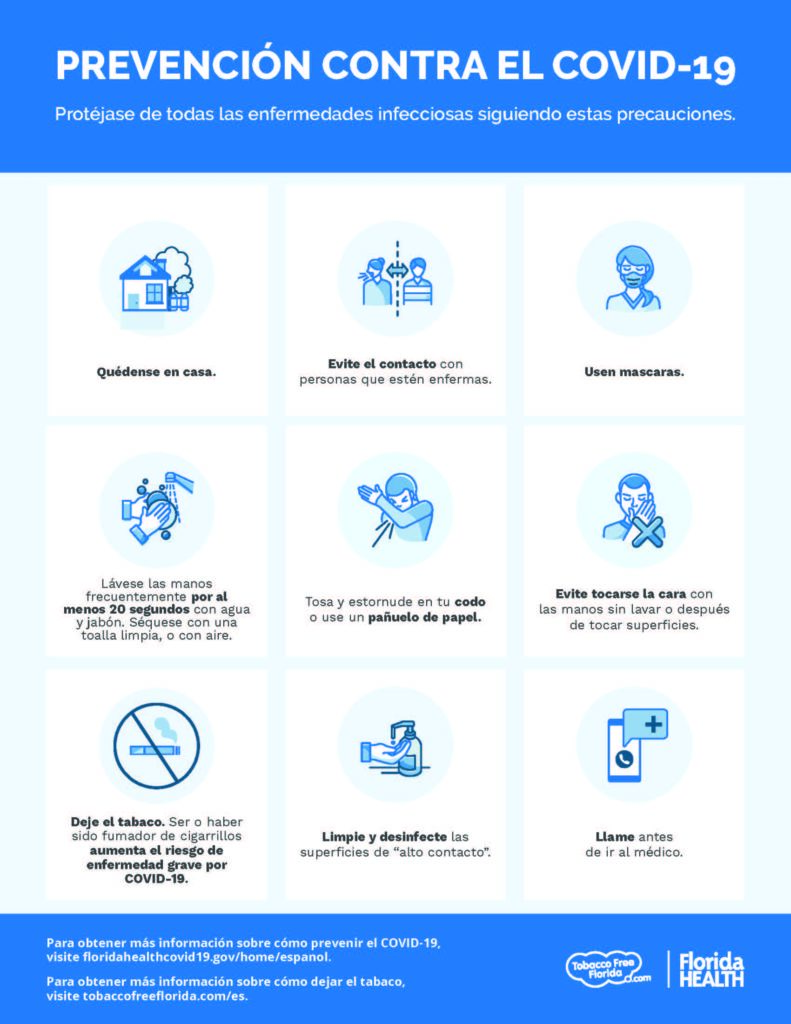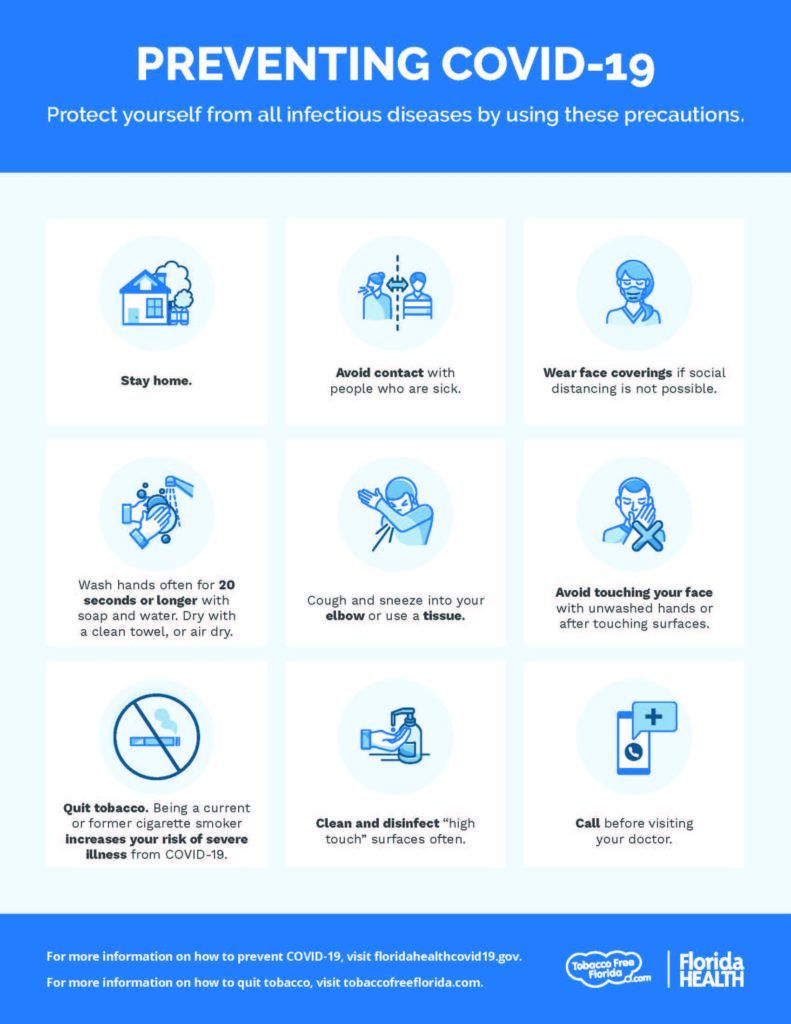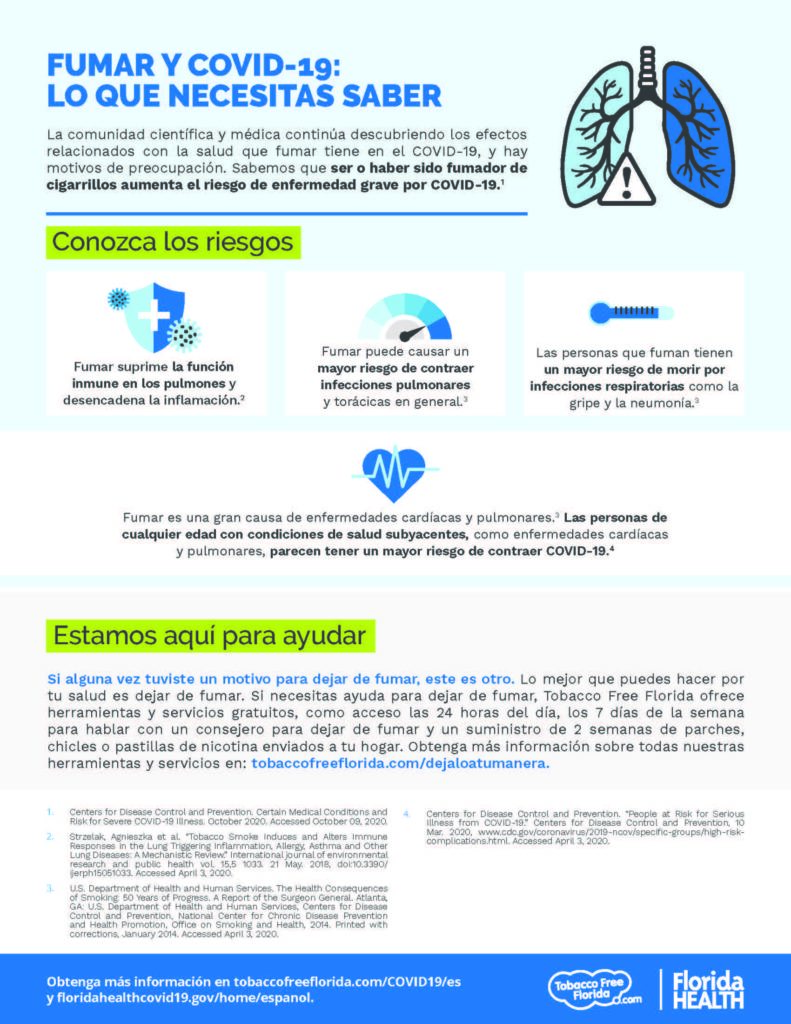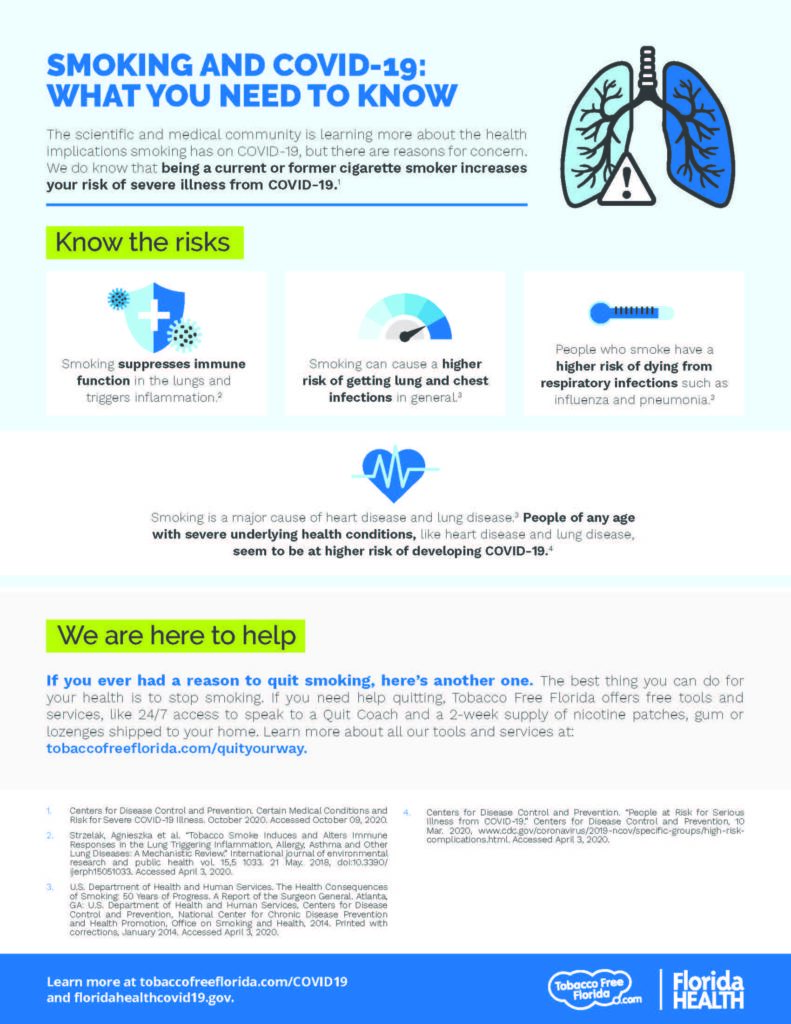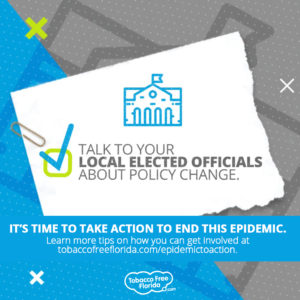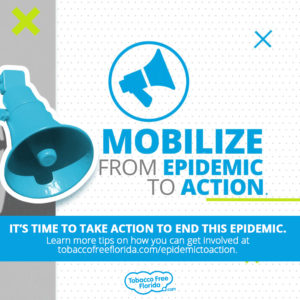The Link Between African Americans and Menthol Cigarettes
If it seems like most smokers in Black communities smoke menthol cigarettes, it’s not a coincidence. For years, the tobacco industry has heavily targeted African-Americans with menthol cigarette marketing through culturally tailored advertising images and messages. 1, 2 Their marketing has worked. In the U.S., nearly nine out of 10 Black smokers aged 12 years and older prefer menthol cigarettes. 3 In fact, African-American cigarette smokers are nearly 11 times more likely to use menthol cigarettes than White smokers. 4
Since tobacco companies strategically place advertising in a larger amount of African-American publications, Black communities have been more exposed to cigarette ads than White communities. 5 There are also more tobacco retailers located in African-American and other minority neighborhoods. 6 And tobacco companies strategically create price promotions, like discounts and multi-pack coupons, which are most often used by African-Americans and other minority groups. 7 Retail outlets in Black communities even give menthol cigarettes more shelf space. 8 Some other strategies the tobacco industry has enacted to target menthol cigarettes to Black Americans include: campaigns that use urban culture and language to promote menthol cigarettes, tobacco-sponsored hip-hop bar nights with free menthol cigarette samples, and targeted direct-mail promotions. 9, 10
Research shows that menthol cigarettes may be more addictive than non-menthol cigarettes.11
Menthol makes cigarette smoking easier to start and harder to quit. 12 Menthol flavoring allows the lungs to expand further, and allows more of the toxic and cancer-causing chemicals in cigarette smoke to be absorbed into the body, which can lead to addiction, disease and death. 13, 14 This is part of the reason why African-Americans are more likely to die from smoking-related diseases than other groups, even though they usually smoke fewer cigarettes and start smoking at an older age. 15, 16, 17, 18, 19, 20 The four leading causes of death among African-Americans are heart disease, cancer, stroke and diabetes – and tobacco use is a major risk factor for all of them. 21, 22, 23
Like all smokers, most African-Americans want to quit smoking, and many have tried. 24, 25
The link between menthol cigarettes and Black smokers is so strong that if a ban on menthol cigarettes was enacted, a reported 44.5 percent of African-American menthol smokers would quit smoking. 26 However, evidence shows that menthol cigarette smokers are less likely to quit successfully than non-mentholated cigarette smokers, especially among African-American and Hispanic smokers.27, 28, 29, 30, 31, 32, 33, 34, 35 Despite making more attempts at quitting smoking, African-Americans are less successful than White and Hispanic cigarette smokers—possibly because of a lower rate of using quit aids (like medication and counseling). 36, 37
The good news is that Tobacco Free Florida has free tools and services to help African-American smokers quit, and we’ve already helped more than 212,000 Floridians quit smoking for good. If you’re ready to quit, go to tobaccofreeflorida.com/quityourway to build a successful quit plan. If you’re ready to help, visit tobaccofreeflorida.com/get-involved to learn more about how you can combat tobacco use in your community.
1 National Cancer Institute. The Role of the Media in Promoting and Reducing Tobacco Use [PDF–6.50 MB]. Smoking and Tobacco Control Monograph No. 19, NIH Pub. No. 07-6242, June 2008 [accessed 2019 July 29].
2 Gardiner PS. The African Americanization of Menthol Cigarette Use in the United States. Nicotine and Tobacco Research 2004; 6:Suppl 1:S55-65 [cited 2017 Oct 27].
3 Giovino GA, Villanti AC, Mowery PD et al. Differential Trends in Cigarette Smoking in the USA: Is Menthol Slowing Progress? Tobacco Control, doi:10.1136/tobaccocontrol-2013-051159, August 30, 2013 [cited 2017 Oct 27].
4 Lawrence D, Rose A, Fagan P, Moolchan ET, Gibson JT, Backinger CL. National patterns and correlates of mentholated cigarette use in the United States. Addiction. 2010;105:13-31.
5 U.S. Department of Health and Human Services. Tobacco Use Among U.S. Racial/Ethnic Minority Groups—African Americans, American Indians and Alaska Natives, Asian Americans and Pacific Islanders, and Hispanics: A Report of the Surgeon General. Atlanta: U.S. Department of Health and Human Services, Centers for Disease Control and Prevention, Office on Smoking and Health, 1998 [accessed 2019 July 29].
6 Center for Public Health Systems Science. Point-of-Sale Strategies: A Tobacco Control Guide [PDF–15.6 MB]. St. Louis: Center for Public Health Systems Science, George Warren Brown School of Social Work at Washington University in St. Louis and the Tobacco Control Legal Consortium, 2014 [accessed 2019 July 29].
7 Center for Public Health Systems Science. Point-of-Sale Strategies: A Tobacco Control Guide [PDF–15.6 MB]. St. Louis: Center for Public Health Systems Science, George Warren Brown School of Social Work at Washington University in St. Louis and the Tobacco Control Legal Consortium, 2014 [accessed 2019 July 29].
8 Center for Public Health Systems Science. Point-of-Sale Strategies: A Tobacco Control Guide [PDF–15.6 MB]. St. Louis: Center for Public Health Systems Science, George Warren Brown School of Social Work at Washington University in St. Louis and the Tobacco Control Legal Consortium, 2014 [accessed 2019 July 29].
9 U.S. Department of Health and Human Services. Preventing Tobacco Use Among Youth and Young Adults: A Report of the Surgeon General. Atlanta: U.S. Department of Health and Human Services, Centers for Disease Control and Prevention, National Center for Chronic Disease Prevention and Health Promotion, Office on Smoking and Health, 2012.
10 National Cancer Institute. The Role of the Media in Promoting and Reducing Tobacco Use. Bethesda (MD): U.S. Department of Health and Human Services, National Institutes of Health, National Cancer Institute, 2008.
11 Smokefree.gov. Menthol Cigarettes. Bethesda (MD): U.S. Department of Health and Human Services, National Institutes of Health, National Cancer Institute, 2015 [accessed 2019 July 29].
12 U.S. Food and Drug Administration (FDA), Preliminary Scientific Evaluation of the Possible Public Health Effects of Menthol Versus Nonmenthol Cigarettes, July 2013.
13 U.S. Department of Health and Human Services. Tobacco Use Among U.S. Racial/Ethnic Minority Groups—African Americans, American Indians and Alaska Natives, Asian Americans and Pacific Islanders, and Hispanics: A Report of the Surgeon General. Atlanta: U.S. Department of Health and Human Services, Centers for Disease Control and Prevention, Office on Smoking and Health, 1998 [accessed 2019 July 29].
14 Ton HT, Smart AE, Aguilar BL, et al. Menthol enhances the desensitization of human alpha3beta4 nicotinic acetylcholine receptors. Mol Pharmacol 2015;88(2):256-64 [accessed 2019 July 29].
15 U.S. Department of Health and Human Services. Tobacco Use Among U.S. Racial/Ethnic Minority Groups—African Americans, American Indians and Alaska Natives, Asian Americans and Pacific Islanders, and Hispanics: A Report of the Surgeon General. Atlanta: U.S. Department of Health and Human Services, Centers for Disease Control and Prevention, Office on Smoking and Health, 1998 [accessed 2019 July 29].
16 Centers for Disease Control and Prevention. Deaths: Final Data for 2013, Table 13 [PDF–1.67 MB]. National Vital Statistics Reports. Atlanta: Centers for Disease Control and Prevention, National Center for Health Statistics, 2013 [accessed 2019 July 29].
17 Heron, M. Deaths: Leading Causes for 2010 [PDF–5.08 MB]. National Vital Statistics Reports, 2013;62(6) [accessed 2019 July 29].
18 Schoenborn CA, Adams PF, Peregoy JA. Health Behaviors of Adults: United States, 2008–2010 [PDF–3.21 MB]. National Center for Health Statistics. Vital Health Stat 10(257) [accessed 2019 July 29].
19 American Lung Association. Too Many Cases, Too Many Deaths: Lung Cancer in African Americans [PDF–1.68 MB]. Washington, D.C.: American Lung Association, 2010 [[accessed 2019 July 29].
20 U.S. Department of Health and Human Services. The Health Consequences of Smoking. Atlanta: U.S. Department of Health and Human Services, Centers for Disease Control and Prevention, National Center for Chronic Disease Prevention and Health Promotion, Office on Smoking and Health, 2004 [accessed 2019 July 29].
21 U.S. Department of Health and Human Services. Tobacco Use Among U.S. Racial/Ethnic Minority Groups—African Americans, American Indians and Alaska Natives, Asian Americans and Pacific Islanders, and Hispanics: A Report of the Surgeon General. Atlanta: U.S. Department of Health and Human Services, Centers for Disease Control and Prevention, Office on Smoking and Health, 1998 [accessed 2019 July 29].
22 Centers for Disease Control and Prevention. Deaths: Final Data for 2013, Table 13 [PDF–1.67 MB]. National Vital Statistics Reports. Atlanta: Centers for Disease Control and Prevention, National Center for Health Statistics, 2013 [accessed 2019 July 29].
23 Heron, M. Deaths: Leading Causes for 2010 [PDF–5.08 MB]. National Vital Statistics Reports, 2013;62(6) [accessed 2019 July 29].
24 U.S. Department of Health and Human Services. The Health Consequences of Smoking—50 Years of Progress: A Report of the Surgeon General. Atlanta: U.S. Department of Health and Human Services, Centers for Disease Control and Prevention, National Center for Chronic Disease Prevention and Health Promotion, Office on Smoking and Health, 2014 [accessed 2019 July 29].
25 Centers for Disease Control and Prevention. Quitting Smoking Among Adults—United States, 2001–2010. Morbidity and Mortality Weekly Report, 2011;60(44):1513–9 [accessed 2019 July 29].
26 Pearson, J. L., Abrams, D. B., Niaura, R. S., Richardson, A., & Vallone, D. M. (2012). A Ban on Menthol Cigarettes: Impact on Public Opinion and Smokers’ Intention to Quit. American Journal of Public Health, 102(11), e107–e114. https://doi.org/10.2105/AJPH.2012.300804
27 Stahre M, Okuyemi KS, Joseph AM, Fu SS. Racial/ethnic differences in menthol cigarette smoking, population quit ratios and utilization of evidence-based tobacco cessation treatments. Addiction. 2010;105:75-83.
28 Gundersen DA, Delnevo CD, Wackowski O. Exploring the relationship between race/ethnicity, menthol smoking, and cessation, in a nationally representative sample of adults. Prev Med. Dec 2009;49(6):553-557. 1724 MASSACHUSETTS AVE, NW | WASHINGTON, DC 20036 | T 202.454.5555 F 202.454.5599 | LEGACYFORHEALTH.ORG Revised Apr. 2014 5/5.
29 Pletcher MJ, Hulley BJ, Houston T, Kiefe CI, Benowitz N, Sidney S. Menthol cigarettes, smoking cessation, atherosclerosis, and pumonary function: the Coronary Artery Development in Young Adults (CARDIA) study. Archives of Internal Medicine. 2006;166:1915-1922.
30 Gandhi KK, Foulds J, Steinberg MB, Lu SE, Williams JM. Lower quit rates among African American and Latino menthol cigarette smokers at a tobacco treatment clinic. Int J Clin Pract. 2009;63:360-367.
31 Okuyemi KS, Faseru B, Sanderson Cox L, Bronars CA, Ahluwalia JS. Relationship between menthol cigarettes and smoking cessation among African American light smokers. Addiction. 2007;102:1976-1986.
32 Trinidad DR, Pérez-Stable EJ, Messer K, White MM, Pierce JP. Menthol cigarettes and smoking cessation among racial/ethnic groups in the United States. Addiction. 2010;105:84-94.
33 Levy DT, Blackman K, Tauras J, et al. Quit attempts and quit rates among menthol and nonmenthol smokers in the United States. Am J Public Health. Jul 2011;101(7):1241-1247.
34 Okuyemi K, Ahluwalia J, Ebersole-Robinson M, Catley D, Mayo M, Resnicow K. Does menthol attenuate the effect of bupropion among African American smokers? Addiction. 2003;98(10):1387-1393.
35 Delnevo CD, Gundersen DA, Hrywna M, Echeverria SE, Steinberg MB. Smoking-cessation prevalence among U.S. smokers of menthol versus non-menthol cigarettes. Am J Prev Med. Oct 2011;41(4):357-365.
36 U.S. Department of Health and Human Services. Tobacco Use Among U.S. Racial/Ethnic Minority Groups—African Americans, American Indians and Alaska Natives, Asian Americans and Pacific Islanders, and Hispanics: A Report of the Surgeon General. Atlanta: U.S. Department of Health and Human Services, Centers for Disease Control and Prevention, Office on Smoking and Health, 1998 [accessed 2019 July 29].
37 Centers for Disease Control and Prevention. Quitting Smoking Among Adults—United States, 2001–2010. Morbidity and Mortality Weekly Report, 2011;60(44):1513–9 [accessed 2019 July 29].


